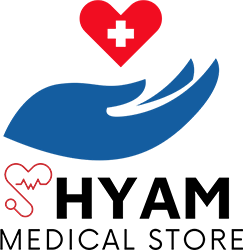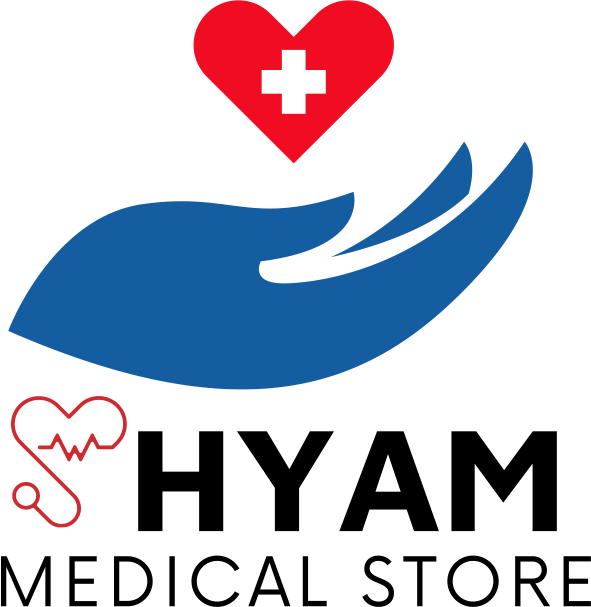-
REPLAID POWDER
Rs71.00 -
GLUCOVITA BOLTS ORANGE
Rs9.00 -
GLIMISAVE DM 1/500 TAB
Rs110.00 -
ASCORIL C SYRUP
Rs158.00 -
Neurobion Forte Tablet
Rs34.00 -
GLUCOVITA BOLTS STRAWBERRY
Rs9.00
INTRODUCTION
HYQ 400MG TABLET contains Hydroxychloroquine which belongs to the group of medicines called Antimalarials or Disease-Modifying Anti-Rheumatic Drugs (DMARDs). It is used to prevent and treat malarial infections in adults and children. Malaria is a parasitic infection caused by the plasmodium parasite, which spreads in blood by the bite of an infectious mosquito. It is characterized by symptoms such as fever, chills, sweating, headache, nausea, vomiting, body pain and general discomfort.
It is also used to treat rheumatoid arthritis, discoid and systemic lupus erythematosus in adults and to treat juvenile idiopathic arthritis in children. Also, it is used to treat skin problems (which are sensitivity to sunlight).
Rheumatoid arthritis, discoid and systemic lupus erythematosus is an inflammatory autoimmune condition in which the immune system attacks its own body cells. It is generalized by symptoms such as painful swelling, stiffness, swelling, tenderness or weakness of bone joints, weakness, fever, skin rashes and anaemia, etc.
HYQ 400MG TABLET is not recommended for use in patients with maculopathy or retinal disorder of the eye and changes in eye colour, etc. Your doctor may recommend you to take relevant tests to understand your existing condition.
Before taking HYQ 400MG TABLET inform your doctor if you have heart disease, psoriasis or porphyria, blood disorders (such as aplastic anaemia, agranulocytosis, leukopenia or thrombocytopenia) glucose-6-phosphate dehydrogenase (G6PD) deficiency, psychological disorders, abnormal blood sugar levels, etc.
HYQ 400MG TABLET should be used with caution in pregnant and breastfeeding women only if advised by the doctor. HYQ 400MG TABLET should be used with caution in children and elderly patients (aged 65 years and above).
The most common side effects of taking HYQ 400MG TABLET are nausea, vomiting, loose stools, stomach pain, headache, loss of appetite and skin rashes. Consult your doctor if any of the side effects worsen.
USES OF HYQ 400MG TABLET
- Prevents and treats malarial infection in adults and children
- Treats rheumatoid arthritis, discoid and systemic lupus erythematosus
- Treats skin problems (which are sensitive to sunlight)
- Treats juvenile idiopathic arthritis
HOW HYQ 400MG TABLET WORKS
HYQ 400MG TABLET works by increasing the potential of Hydrogen (pH) in a cell which disrupts the survival of infectious organisms and it also decreases the release of inflammatory enzymes. As a result, HYQ 400MG TABLET treats malarial infections in children and adults, it also treats rheumatoid arthritis and lupus erythematosus in adults.
DIRECTIONS FOR USE
Always take HYQ 400MG TABLET as directed by your physician. Swallow the medicine as a whole with a glass of water and do not crush or chew the medicine. Your doctor will decide the correct dose, duration and frequency for you depending on your age, body weight and disease conditions.
SIDE EFFECTS OF HYQ 400MG TABLET
COMMON
- Nausea, vomiting
- Diarrhoea
- Stomach pain
- Headache
- Loss of appetite
- Skin rashes or itching
- Mood swings with uncontrollable laughing or crying
UNCOMMON
- Changes in the colour of the skin, nose, mouth or hair
- Dizziness
- Hair loss
- Decreased reflexes
- Vertigo (spinning sensation)
- Ringing in the ears
RARE
Stop taking HYQ 400MG TABLET and contact your doctor immediately if you experience any of the following side effects:
- Severe allergic reactions (such as skin rash, redness, itching, swallowing or breathing problems, swelling of your lips, face, throat or tongue)
- Blistering of the skin, particularly the mouth, face, nose and genitals, fever and flu-like symptoms such as eosinophilia and systemic symptoms (DRESS), stevens-johnson syndrome
- Lowering of the blood glucose level
- Muscle weakness, muscle spasms or cramps, or changes in sensation of your skin (tingling)
- Eye problems (changes in the colour of the eye, blurring vision, sensitivity to light)
- Weakening of the heart muscle, chest pain, an irregular or abnormal heartbeat, feeling dizzy or tired, swelling of feet, ankles and legs
- Abnormal bleeding or bruising, tiredness and pale skin
- Recurrent infections such as sore throat, mouth ulcers and fever
- Muscle stiffness, abnormal movements or shivering of body parts
- Altered behaviour
HOW TO MANAGE SIDE EFFECTS
Nausea or vomiting:
Stick to simple meals while taking this medicine. Avoid eating oily rich, fried or spicy foods. Do not lie down or sleep immediately after eating. Consult your doctor if the symptom does not improve.
Stomach pain:
Try to rest and relax. Eat and drink slowly or try to have smaller meals more frequently. Keep a heating pad on your stomach. If the symptom does not improve, consult your doctor.
Loss of appetite:
Eat when you are hungry. Eat smaller meals more often than usual. Snack only when you're hungry. Eat a nutritious snack that is rich in calories and protein, such as dried fruit and nuts. Consult your doctor immediately if the symptoms worsen or persist.
Skin rash:
Avoid hot showers because hot water can irritate your skin further. Do not scratch the affected area. Use protective clothing when going outdoors. Regularly moisturize your skin. Consult your doctor if the symptom worsens.
WARNING & PRECAUTIONS
PREGNANCY
HYQ 400MG TABLET should be used with caution in pregnant women if recommended by your doctor. Inform your doctor immediately if you become pregnant or think you may be pregnant while taking HYQ 400MG TABLET.
BREASTFEEDING
HYQ 400MG TABLET should be used with caution in breastfeeding women only if recommended by your doctor as it can pass through the breast milk. Consult your doctor before taking HYQ 400MG TABLET.
DRIVING AND USING MACHINES
Do not drive or operate any machines if you experience blurred vision or any eye problems while taking HYQ 400MG TABLET.
KIDNEY
HYQ 400MG TABLET should be taken with caution in patients with kidney problems. Consult your doctor before taking HYQ 400MG TABLET.
LIVER
HYQ 400MG TABLET should be taken with caution in patients with liver problems. Consult your doctor for advice before taking HYQ 400MG TABLET.
ALLERGY
Do not take HYQ 400MG TABLET if you are allergic to Hydroxychloroquine, similar medicines such as quinolones (Ex. chloroquine) and quinine or any other ingredients of this medicine.
HEART DISEASE
HYQ 400MG TABLET should be taken with caution in patients with heart disease (such as cardiomyopathy, abnormal heartbeat, long QT syndrome) or have a history of a heart attack. Consult your doctor before taking HYQ 400MG TABLET.
OTHERS
HYQ 400MG TABLET is not recommended for use if you:
- Have an eye problem which affects the retina (maculopathy)
- Experience change in eye colour or any other problem
Before taking HYQ 400MG TABLET, inform your physician if you:
- Have abnormal blood sugar levels
- Have glucose-6-phosphate dehydrogenase (G6PD) deficiency or porphyria
- Have psoriasis
- Have a blood disorder such as aplastic anaemia, agranulocytosis, leukopenia or thrombocytopenia
- Have any problems with the nervous system or brain
- Have severe stomach or gut problems
- Have a psychological disorder such as mood swings or suicidal behaviors
- Had a bad reaction to quinine in the past
Use in pediatrics:
HYQ 400MG TABLET should be used with caution in children. Your child’s doctor will decide the dose, duration of treatment and its frequency depending upon the child’s age, body weight, severity of disease and other disease conditions.
Use in geriatrics:
HYQ 400MG TABLET should be taken with caution in elderly patients (aged 65 years and above). Consult your doctor before taking HYQ 400MG TABLET.
INTERACTIONS
A. Drug - Drug interactions:
Before taking HYQ 400MG TABLET, inform your doctor if you are taking any of the following medicines:
- Insulin, sulfonylureas such as glimepiride, meglitinide, thiazolidinedione such as pioglitazone, metformin (used to treat diabetes)
- Digoxin, amiodarone (used to treat heart disease)
- Azithromycin, clarithromycin, erythromycin, gentamicin, neomycin, tobramycin and moxifloxacin (used to treat bacterial infections)
- Cimetidine (used to treat stomach ulcers)
- Neostigmine and pyridostigmine (used to treat myasthenia gravis and muscle weakness)
- Tamoxifen (used to treat eye infections)
- Halofantrine, mefloquine (used to treat malarial infection)
- Amisulpride, quetiapine, risperidone (used to treat psychiatric disorders)
- Rabies vaccine (used to prevent rabies)
- Ciclosporin (used to prevent organ transplant rejection)
- Praziquantel (used to treat worm infections)
- Agalsidase (used to treat fabry’s disease)
- Carbamazepine, sodium valproate, topiramate (used to treat fits or seizures)
Overdosage:
If you or anyone else accidentally takes more of HYQ 400MG TABLET, consult your doctor immediately or visit a nearby hospital immediately if the symptoms worsen. The symptoms may include abnormal or low blood pressure, low potassium levels in the blood, abnormal heartbeat, depression, seizures, impaired vision, transient blindness, cardiac arrest, coma or death.


















